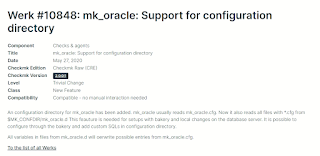Rito da Santa Eucaristia
Tenho um certo fascínio por rituais. Ontem estava conversando com minha mãe, católica fervorosa, a respeito de como o ritual de celebração das missas haviam mudado com os anos, onde na Idade Média as missas eram celebradas em Latim, com o sacerdote de costas para os fiéis, virado para o altar. Não havia sermão, nem salmos, nem pessoas cantando. Na verdade ninguém entendia nada daquilo que estava acontecendo. Iam para missa para se sentirem devotos a Deus e conseguirem sua salvação de certo modo.
Muita coisa mudou na celebração das missas (falando especificamente sobre a Igreja Católica). Hoje a missa é realmente celebrada para seus fiéis. Pessoas cantando, respondendo e participando. Particularmente não gosto muito da parte de cantar, pois como disse, sou muito "ritualista". Mas um rito foi conservado através de todo esse tempo, com mínimas mudanças: A Oração Eucarística (ou Canon Romanus). O ritual romano que precede a Comunhão.
O que se sabe sobre a origem desse rito é que foi originado em St. Ambrose, trazido a Canterbury por Santo Augustinho e utilizada exclusivamente pela Igreja da Inglaterra, até 1549. Só em 1662 é que foi incluída nos ritos litúrgicos da missa, mas acontecia silenciosamente, de forma moderada. Apenas em 1970 Roma oredenou que o ritual fosse pronunciado em voz alta e adicionando-se algumas orações alternativas em meio desta.
"Por Cristo, com Cristo e em Cristo, a vós Deus Pai todo poderoso, na unidade do Espírito Santo, toda honra e toda glória, agora e para sempre!"
Em Latim: "Per ipsum, et cum ipso, et in ipso, est tibi Deo Patri omnipotenti, in unitate Spiritus Sancti, omnis honor et gloria per omnia saecula saeculorum."
(Escutando Pink Floyd - Julia Dream)
======================
I'm fascinated by rituals. Yesterday night I was talking with mum, frivolous catholic, about the Mass celebration rituals and its changes along the years. Because at the Middle Age the Mass was celebrated in Latin, whit the priest turned back to the faithful, looking to the altar. There was no Sermon, no lectures and nor people singing. In fact nobody understood nothing about what happening. They would go to the Mass just to fell safe, save and because they fear God.
A lot of things had changed about Mass celebrations (specifically about Catholic Church). Today the Mass is do celebrated to the faithful. People are singing, answering and participating all the Mass. Particularly I don't like the "singing" part, because as I said, I'm too "ritualist". But an specific rite has been conserved through the time, with few changes: The Eucharistic Pray (or Canon Romanus). This roman ritual which precedes the Communion, had its origin (until we notice) at St. Ambrose. It was brought to Canterbury by St. Augustine and used exclusively in the Church of England until 1549.
Only in 1662 it was included as a liturgical practice for all churches. Anyway it happened in quite silence, on a very moderated way. Only in 1970 Rome ordered the Eucharistic Prayer to be said aloud and was added alternative prayers.
"By Christ, with Christ and in Christ, to thy All Might God Father, at the unity of the Holy Spirit, all the honor and all the glory, now and forever."
And in Latin:"Per ipsum, et cum ipso, et in ipso, est tibi Deo Patri omnipotenti, in unitate Spiritus Sancti, omnis honor et gloria per omnia saecula saeculorum."
(Hearing Pink Floyd - Julia Dream)



I am in area full of Catholics. There is a church in the middle of my town. Everyone within sight of it, it seems, is a devout Catholic. I was brought up just out of sight of it- as a Methodist. In a protestant denomination as such, the congregations tend to do as they please, and it can vary from sect to sect and even from congregation to congregation. You walk in for a service, and you can get just about anything, although generally speaking there are some characteristics that one can expect from each sect. For example, the Episcopalians are a bit more formal, the Quakers have more of a meeting, and if you go to a stereotypical African American Church, especially down south, the whole service is a singing, dancing party.
ResponderExcluir